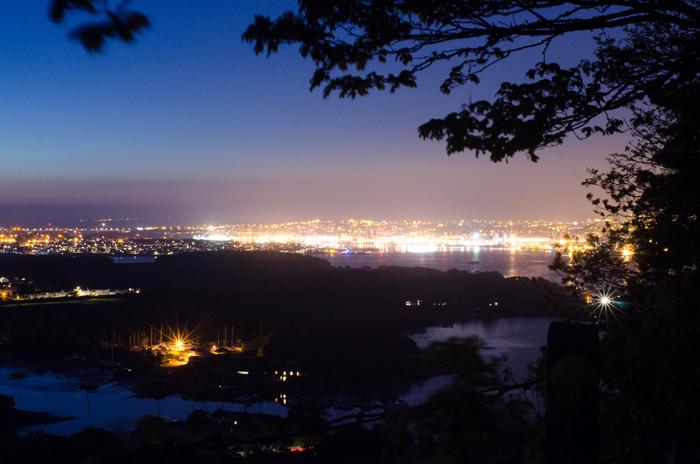Scientists, policy makers, and marine and environmental professionals across the world are being encouraged to sign up to a new initiative highlighting some of the global threats posed by light pollution.

Credit: Thomas Davies, University of Plymouth
Scientists, policy makers, and marine and environmental professionals across the world are being encouraged to sign up to a new initiative highlighting some of the global threats posed by light pollution.
The Global Ocean Artificial Light at Night Network (GOALANN) has been launched today at the United Nations Ocean Decade Conference in Barcelona.
It has been established by ecologists, oceanographers and social scientists who have spent more than a decade studying the impact of light pollution on the ocean, and the many species living in or near it.
The GOALANN network aims to expand on the impact of that work, unifying research groups from around the world to provide a central resource of marine light pollution expertise, projects and tools.
The idea is then for this information to be accessed by policy makers, environmental managers, maritime industries and others responsible for future decisions which may create or mitigate light pollution, as well as the general public.
Dr Thomas Davies, Lecturer in Marine Conservation at the University of Plymouth, is one of the co-leaders of the GOALANN initiative.
He said: “Ten years ago, we knew almost nothing about how much light pollution the oceans were exposed to, or the ecological harm this caused. We are beginning to answer these questions and uncovering the extent to which we need to make decisions that will help ecosystem recovery. However, light pollution is not receiving the same attention as climate change, ocean acidification, marine plastics or noise pollution. That urgently needs to change in the face of increasing coastal development, and an ever-growing global population, and we hope the GOALANN initiative will go some way to delivering that.”
Professor Tim Smyth, Head of Science for Marine Biogeochemistry and Observations at Plymouth Marine Laboratory, is also a co-leader of the GOALANN initiative. He added: “It seems that the more marine ecological indicators we look at, the more impacts we find of artificial light pollution. That includes having an effect on functions such as predator prey dynamics, reproductive cycles and disruption to the daily rhythm of life in the ocean. By launching this initiative, we hope to raise awareness of these threats and push the impacts of light pollution up the environmental agenda.”
Dr Davies and Professor Smyth, and others involved in the GOALANN network, have been involved in a number of impactful light pollution studies in recent years.
They showed that coastal cities leave up to 75% of the seafloor exposed to harmful light pollution, and that up to 1.9 million sq km of the world’s coastal waters are being exposed to biologically significant levels of artificial light at night.
They have also demonstrated the effects it can have on marine and coastal species, from crustaceans who rely on light from the moon and stars to find food, to coral reefs that have been tricked into spawning earlier than they should.
These findings and others were highlighted at the launch of the GOALANN network in Barcelona, with scientists hoping it will help better represent the issue of light pollution on the Ocean Decade agenda.
More information about the Global Ocean Artificial Light at Night Network is available at http://www.goalann.org/.




